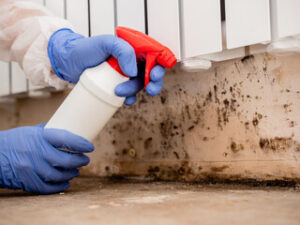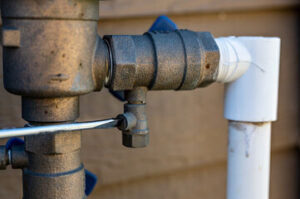SEO is a blanket term for a variety of techniques that boost visibility and authority, connect with customers, and grow. Discover how to employ the most effective SEO For Pest Control Companies strategies to maximize the success of your pest control business.

Make your local audience your priority by claiming online business listings, ensuring NAP information is consistent across directories, and encouraging satisfied clients to share their positive experiences.
Keyword Research
Search engine optimization is a crucial tool for boosting your pest control business’s visibility online. But navigating the complexities of SEO can feel like tackling a hornet’s nest. Keyword research is key to attracting your target audience, but leveraging keyword terms that are both relevant and popular can be tricky. Our company tackles this nuanced challenge with a targeted approach, crafting keywords that reflect the essence of your services while capturing the attention of search engines and potential customers alike.
Effective local SEO for pest control businesses involves optimizing a website for a specific geographic area and establishing a strong local online presence. This includes claiming and optimizing online business listings, incorporating location-specific keywords in website content, and ensuring that all information is consistent across all online platforms.
Additionally, it’s important to build trust with a local audience by regularly posting informative and engaging content on social media platforms. This could include helpful tips on preventing or eliminating common pests, before-and-after photos of successful pest removal projects, and detailed how-to guides. Such content positions your pest control company as a knowledgeable and authoritative resource in the industry, which can boost SEO rankings. SEO analytics also help you understand what your audience is looking for, allowing you to better tailor your content and services to their needs.
Optimize Your Website
The first step in a successful pest control marketing strategy is making sure your website is optimized for search. Start by running it through a free keyword analysis tool like WordStream, then make sure your site contains the words and phrases that your customers use when searching for your services. This is a quick and easy way to get more traffic and increase your chances of getting long-term clients.
Next, focus on differentiating your brand from the competition. This is essential for growing a pest control business because clients are often faced with numerous options in their local area. A strong branding plan can help them remember your company and see you as a viable option when they need a pest control service in the future.
Aside from optimizing your website, you can also try using pay-per-click (PPC) ads to promote your services. These are ads that appear above or below organic results on Google searches and target specific users based on their demographics and interests.
Another great way to stand out from your competitors is by providing useful content on your website. This can be anything from blog articles to videos to infographics. By offering helpful content, you can position yourself as a leader in your industry and inspire potential clients to trust your services. If you don’t have a lot of money to spend on creating valuable content, consider outsourcing this work to a writer.
Optimize Your Social Media Profiles
Optimizing social media profiles and content for SEO purposes can boost your brand’s visibility on search engine results pages (SERPs) and attract more potential customers. Optimizing your profile and posts will ensure that your content is discovered by users who are interested in your services, resulting in higher engagements (likes, shares, comments) and overall interaction.
Incorporate keywords into your profile description and bio sections to improve your chances of being found on social media searches. Also, be sure to include a link to your website in the ‘About Us’ section of your social media profiles.
Use a consistent username across your social media accounts and choose high-quality profile images to enhance the visual appeal of your content. Additionally, make sure to add descriptive alt text for your Facebook photos and post titles. Lastly, prioritize mobile-friendliness to make it easier for users to view and interact with your social media content on their smartphones.
Optimize Your Google My Business Profile
Your Google Business Profile (GBP) is an essential part of your local SEO strategy. A well-optimized GBP improves your chances of appearing in relevant search results, helps consumers discover your business, and it also encourages people to choose you over the competition. A fully optimized GBP will also make it easier for customers to interact with you, which can increase brand trust and lead to more conversions.
When creating your Google Business Profile, be sure to enter a local phone number and use the correct spelling of your business name. It’s also important to list all the services your business offers and ensure the information is accurate.
It’s also important to add high-quality photos to your GBP. The more quality photos you have, the more likely your business will appear in local search results. In addition to attracting customers, the photos will also help establish your authority and trustworthiness.
Once your GBP is optimized, it’s important to keep it updated regularly. It’s recommended to update your content at least once a month and respond to reviews and questions promptly. You should also consider posting updates that highlight new products or special offers.
Additionally, if your business offers a unique service that you can’t find in one of the available categories, consider adding a category. However, be careful not to select a category that isn’t relevant to your business; doing so can negatively affect your GMB visibility.
Create A Blog Strategy
With Google owning 92% of global search engine traffic, achieving top-ranking positions on Google searches is a primary goal for many pest control businesses. To do so, targeting the right keywords and creating valuable content for potential customers is a must. But the most effective pest control marketing campaigns do more than just optimize websites for SEO – they take a holistic approach that includes local SEO strategies, social media management, and customer feedback management.
Regularly publishing SEO-optimized blog content helps pest control companies improve relevance with both visitors and search engines. Use keyword research tools to identify the most relevant topics that align with your business goals and target audience. Then, create a content calendar that allows you to publish blog articles regularly and consistently. Focus on providing valuable information that is relevant to your target audience, such as tips for pest prevention and treatment or case studies of successful interventions.
In addition to blogging, pest control companies can encourage positive reviews by handing out review request cards after each service and asking for a review on online review platforms. Additionally, pest control companies can boost their online credibility by sharing positive reviews on their website and social media pages.
Our company’s specialized SEO techniques sync with the unique needs of the pest control industry, optimizing both on-page and off-page elements to maximize visibility in search results. This enables pest control companies to attract quality traffic—customers ready to pick up the phone and call for services—from targeted areas and locations.
Encourage Positive Reviews
Pest control companies need to build and maintain a strong online presence. Implementing effective SEO strategies can help attract new customers and improve overall business performance.
Local SEO is an essential marketing strategy for pest control businesses, as it allows them to target specific geographical areas. By optimizing their website and claiming their Google Business Profile listing, pest control businesses can increase their visibility in local search results.
Incorporating keywords into their website content, creating a blog, and establishing a social media presence can also enhance local search rankings. However, it is important to not ignore offline marketing tactics, such as participating in community events and sponsoring local sports teams. In addition, vehicle wraps and signage on service vehicles can serve as moving billboards, promoting the company’s services to potential customers.
To encourage positive reviews, pest control companies can implement a simple process of delighting their customers and thoughtfully asking for feedback. This can be done through exceptional customer service, unexpected perks, or personalized interactions. By following these steps, pest control businesses can turn passive clients into vocal advocates who drive customer satisfaction and referrals. Ultimately, this helps grow the business and establish a trusted reputation in the industry.






